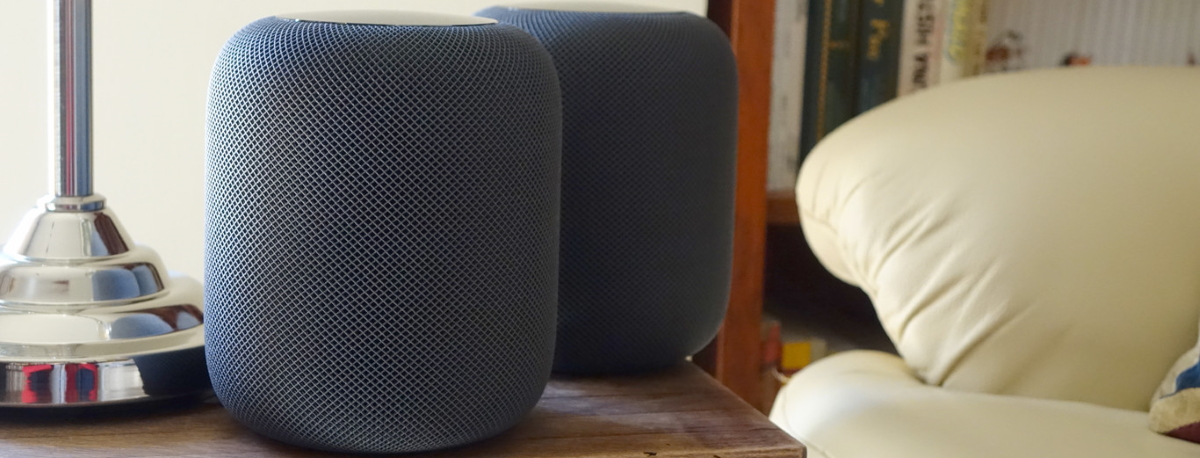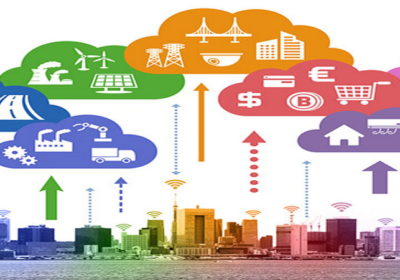
In January 2019, Consumer Intelligence Research Partners (CIRP) estimated that Amazon’s Echo/Alexa controlled 70% of the U.S. smart speaker market. Google Home owned almost all the rest, with only a small percentage going to Apple’s HomePod. It’s a big business that moves millions of dollars a year and continues to grow unabated.
“Alexa, what time does the next train leave for Chicago?”. And the fact is that while these types of questions are becoming increasingly common in thousands of homes around the world, especially in the United States where the penetration of the sector has already reached millions of smart speaker units sold, for another part of the population it still seems that having a device at home that can give you information about what you are looking for, traffic data or the results of your favorite team is still far from being looked upon favorably. Reluctance that, perhaps, Alexa, the equivalent of Google, or any other brand that brings something similar to the market, will end up locking us at home, blocking the garage door or preventing us from turning on the hot water in the shower if it gets “angry” with us.
It’s a matter of seeing how much fiction prevails in the collective unconscious vs. how useful these artificial intelligence systems are, which are becoming more and more fashionable, but also take a large part of the backlash against the possibility of massive spying on our data and private lives to Amazon or Google, something we will talk about in more detail throughout this chapter.
Ads instantly personalized for you
Who hasn’t tried the following? You start talking with your partner or your friends about something at home, with your cell phones or tablet or computer nearby, no matter if they are on or off, and in about 10 minutes you start looking at any page on the internet and pay attention to the ads. What appears? Sure enough. Advertisements for the topics you were talking about a few minutes ago.
The members of this institute do this test regularly. If a few hours ago we were talking about how the new brand of coffee we bought at the supermarket for our morning break doesn’t taste so good, now we already have ads and banners on the tablet where we check the news of the day about a new brand of coffee capsules that has just arrived at our nearest hypermarket. This is no joke. It is not a coincidence. This is how these types of systems have been working for years, but we are still not attentive enough, most of us, to realize it.
Data is the peanut of the present, and of the future
Companies like Amazon, Facebook or Google live on our data, it’s their real business, so they sell and use our data to send us ads, for the moment, as personalized as possible. And in order to analyze all that there is not a team of people behind what we ask Alexa or ask Siri or consult the Ok Google, but there are several algorithms and artificial intelligence systems that analyze very quickly, and with great efficiency, what our phones or tablets pick up by the microphone, no matter that we have it off (still working), or they are picking up the environment through the smart speakers we have in the middle of the kitchen.
Is it really that easy to “spy” on the user? None of these companies admit or consider that this type of personalized advertising is considered spying, after all we have accepted all their privacy policies without reading them and we have put a lot of microphones at home with the different technological and mobile devices we have, in addition to having the house already connected to the internet through our appliances. The broom robot sending the data of our home and its dimensions and characteristics to its central, and other devices transmitting through wifi and IoT (Internet of Things) all the necessary information so that our comfort is increasing, we do not have to worry about doing so many things in the house, and this is increasingly self-regulating and self-managing itself without human intervention.
Home automation and smart homes are, therefore, booming, and the demand for systems that control by voice everything that can be controlled in the home is increasing. It is really convenient to walk in the door and give a few loud commands “on the air” to turn on the heating, activate the shower or start heating the oven. Meanwhile, we leave our things in place, put on our slippers and when we get to the living room, the TV is already on our favorite channel and the volume is adjusted to what we find convenient. There is nothing fictional about this. There are dozens of models and technology for smart homes that include these functions and countries in Southeast Asia such as South Korea or Japan where they are really common, not to mention the development in the United States or more technologically advanced places and with a population more willing to embrace these facilities more quickly.
Exponential investment and development in artificial intelligence
Artificial intelligence, then, continues to be one of the areas of research with the greatest impact and growth in society, and will continue to do so for years to come. Google and Amazon have their own AIs that manage the logistics of ordering and coordinating all the processes of their package delivery or internet search systems. Facebook has an AI that is able to segment news feeds by core population, show those coffee ads on your wall minutes after you’ve talked out loud about it, and the like. All these AIs also share one characteristic, they learn from themselves the more data they receive as input for their operations and algorithms, so the concepts of Machine Learning, Deep Learning and neural networks are starting to fall short to describe the power and capacity of computation and learning that they are achieving every day.
It is a scientific and mathematical field that we have yet to see if it has limits and where it can take us. Domestic applications in home appliances with AI are a routine thing and allow us to simplify our lives a little, although it is not especially hard or complicated to put the heating or turn on the oven yourself, but, even so, the human being always tends to comfort, and so we gladly accept this technology that allows us to do everything for us only by voice commands. Perhaps not in every household, and perhaps not immediately, as quite a few households and families still don’t trust a refrigerator that can send the order to your supermarket app to add milk to the shopping list when it runs out. But those families who are now wary of losing control of a part of household logistics will sooner or later end up with an IoT-connected fridge and that smart speaker that knows all the answers combined from all the encyclopedias in the world. It’s a matter of time, because the dynamics of these last five years show a massive increase in the positive perception that humans are having of this kind of domestic, intelligent, robotic assistance.
Perhaps it is because we do not yet see them as a danger to our integrity and ability to control everything. And they are not. They are not designed to control anything more than the small function they are programmed to do, so the fridge can only tell if there is milk missing or not, but it can’t do anything for your shower or your washing machine. Nor can the Google Home or Amazon’s Alexa do anything more than answer questions or give information, but that’s only because we now have them programmed just for that. If we want them to expand their features, once the penetration of these devices has overcome the psychological barrier of rejection for invasion of privacy that we are doomed to overcome, it is a matter of mounting the same type of AI in other devices that control via wifi the TV, oven, shower and washing machine from a single central point.
Tempting the consumer little by little
Everything always starts the same. You always start the penetration of something new into society by installing a few units of that new technology in something harmless, beneficial and a little helpful to the human beings who use it. So that a number of consumers are accustomed to it and become the Trojan horse to enter into more reticent nuclei of society. It has to be done in this way, otherwise a series of psychological factors and fears present in all of us would be activated regarding what would happen if we cannot even be in control of what happens in our home, or if we cannot even talk in private in our conjugal room.
Bad news, then, for those who sleep with their cell phone near the head of the bed, because there is no way that the microphone of the same is not listening to the conversation and the next day does not show you the most relevant announcements and news according to the content of the conversation. And, again, there are no human beings “spying” on you behind it. It is an algorithm connected to voice recognition programs, connected and managed by an artificial intelligence that controls and governs the different segments of the population and the different sections of the companies that then have to serve you those ads. If it is a cell phone, through Google’s Android systems, if it is an iPhone, the same through Apple, if you are on the computer, between Facebook and Amazon, Google and Microsoft, it is difficult to escape that the “delicious” coffee capsules that are to replace the “bad” ones you have bought are not present in large ads no matter what website you visit or what part of the network you browse.
These companies have come to monopolize and dominate the market, and that is why all the big technology companies have so much power in our lives, marketing our data for it and offering us the necessary technologies so that we can offer it to them for free.
Total disregard of the population about their data
Perhaps the greatest illusion of a large part of the population is to believe that they are “spying” on us to find out who we are in case we commit something “illegal”. This type of perception is what leads most human beings not to worry about their privacy, because most of us do not usually commit or are not planning anything “illegal” and, therefore, we are not worried about what we do, say, or ask on the network, at home or through our cell phones. We do not realize that this is not the function of all the technological management systems we have, but to create a single psychological profile of the person to know us better than we know ourselves. In other words, the big technology companies in the sector have so much data on our private lives, because we provide it with every action we take, that they know and can predict what you will do, what you will need or what you will consume before you yourself have decided to consume or buy it.
And this is so because a large part of the components that make up our personality are subconscious components, and patterns of behavior based on habits that we repeat without paying attention, by habit and sustained learning over time. So, when an algorithm sees that we have ordered the same product 50 times, clicked 38 times on the same type of news or have reviewed 300 times a certain website in a certain period of time, we have read a series of books purchased on Amazon and have searched in Google a series of terms, although you do not remember what you did a month ago in these same services, their computer systems do remember it and have it stored, creating a profile of each user with more and more data that is refined and detailed with each new interaction, coming, therefore, to know more accurately than our own conscious personality what we want subconsciously or what we are looking for, wanting and desiring without even realizing it. It’s a matter of then displaying the right ads on all the pages where you are logged in, for example from your Chrome browser, so that Google’s own AI will serve you the right ads based on your browsing history and the profile Google has of us at all times.
It’s not science fiction or ideas about conspiracies of any kind of governments (although some governments also do something similar through other systems). But, in this case, it is the fight for the data of billions of consumers to get to know them better than they know themselves, as they are the engine of the world economy, and only by knowing that you can offer them exclusively to these to accept to buy it because it is perfectly aligned with their tastes, interests and needs, you can make the consumer is always consuming and consume what they want or need, or are induced to want, as easily as possible.
They know more about us than we know about ourselves
We may still be surprised to be the target of a huge advertising campaign at the level where they can hear you say you’re out of toilet paper at home and you have ads on your cell phone to buy the new roll that smells like pine, but that’s what it’s all about. Most brands can’t afford to launch large-scale, generic advertising campaigns to reach the population through conventional means such as TV commercials or billboards. They still do, of course, but the money and revenue is only made by segmenting the population, completely individualizing the consumer and giving them person to person only what they are certain to buy because they have just said so, or searched for it twenty times in the last month on the internet.
While we do not care that this is so, which does not have to be something “negative”, (although really from IDHUS we believe that we should be concerned), there is no regulation, law or rule that can curb the role of big technology in the economic transformation of society by manipulating the collective psyche and individual segmentation of what we are as people, and what moves us as human beings, offering us the products that contribute to sustain that image we have of ourselves, and that are entering through our senses with every ad in every newspaper we read on the tablet, or with every search we do in the browser.
As these algorithms become more and more efficient, and AIs grow in power of analysis and in ability to differentiate even our voices when they are being picked up by a single smart speaker located in the center of the living room at home, then even ads that will not appear on our partners’ phones will be diverted to the mobile, because it was me who expressed the desire to buy or have something and not the other person. This last point still requires, on the part of large companies, refinement and technological development that is underway, but not fully implemented, so we do not get to have this very private segmentation by individual, perhaps only by family nucleus at the moment, but everything will come.
Exploring every square centimeter
While the robots that vacuum the house already know what elements are in it, how many square meters it has, what layout the rooms have and how much room is available for new furniture, the ads that will be coming to the phone or screen will be offering us furniture that is perfect for that gap between the sofa and the column where nothing fits but just the closet that Ikea has just designed, because the data is shared, there is a market for it, and the companies that collect it have legal tricks to be able to offer it to each other without violating the thousand privacy clauses that, again, none of us have read eager to install that new application and get with it without caring that it was telling us that we will give our consent to the processing of our personal data as the company that collects it deems appropriate. It is simply a way to comply with laws and legal regulations, but nothing that prevents them from continuing to collect data without stopping, so they can then revert them in benefits of all kinds for their business.
So, back to the question, is this a bad thing? Yes, it is, we would say the majority. But it turns out that there is another majority that doesn’t think so. If I need a piece of furniture and I only have 30 cm of space between the sofa and the column, what’s negative in that when I open my cell phone I already have the ad for that closet waiting for me to buy it just a click away? For some, it is an idyllic society in which, what I need, I get it immediately, so it is a benefit for everyone that I do not have to spend hours visiting furniture stores around my neighborhood or searching online catalogs to find what I want.
And this reasoning is also valid. We at IDHUS are not really against any technology, we are delighted with the development of the applications we see and the potential of them, just as when we have explored the new possibilities that 5G, IoT or blockchain bring with them. What we try to warn are of the consequences that this has on other areas of our life, mainly, privacy, and the disappearance of anonymity understood as the impossibility of disappearing from the network, and of disconnecting from the use of the products of large technology companies for what we have to do in our day to day.
Living without depending on the technological giants is impossible
Experiments have been carried out in which attempts have been made by some journalists aware of the issue of “covert” advertising to disconnect and live without using Google, Amazon, Microsoft or Facebook. It’s impossible. You can’t unless you live in some remote village and your life occurs outside of the social and business ecosystem that most of the planet’s population inhabits. There is no way right now to be able to do a minimum of things without having to depend, at some point or another during the day, on some of the services that these companies provide us with. Microsoft controls all Windows computers, Google all internet and all Android mobiles, Apple all Macs and all iPhones, Amazon all or almost all shopping, just like Alibaba in China, and Facebook most of the news and social contacts. You can go a couple of days without you interacting with all of that, but you can’t conduct a “normal” professional and social life without their use.
So, the system has “won” the battle, at least for the time being. All the burden of control now falls on the end user, on whether or not they are aware of what they are exposing when they interact with the technology that these corporate giants have subtly introduced into every home. Whether or not this data then also passes into the hands of governments is another thing, which it does, and therefore remains the first step to everyone in any society on the planet being controlled in one way or another. Again, no conspiracy ideas in any respect. It is pure routine of how the system we live under works and the Black Mirror series is not based on things that do not exist, but on what is already being used or being implanted but is not so obvious that we can be frightened or rebel against the surveillance systems in place.
As long as this level of society’s awareness of privacy and what it represents to have everything we do or don’t do known, and there is no deep debate in the population about whether we are okay, bad, regular or don’t care about what is happening with our data, there will be no options to change one iota the way in which the economic interests behind these voice recognition technologies, home artificial intelligence, internet-connected appliances, etc., do not continue to proliferate. They make our lives easier, more comfortable, but they always take away a bit of privacy and control over it, because, in the end, big brands and companies anticipate our desires and we have what we have asked for before we even knew we were going to ask for it.



